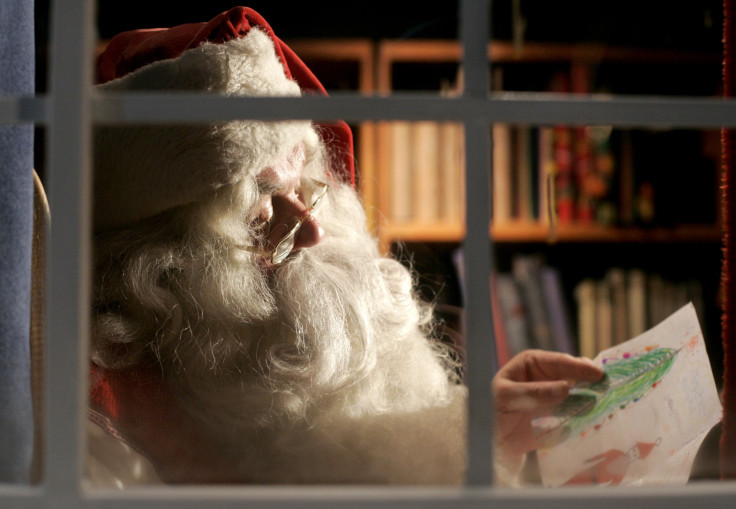Let Children Discover the Truth About Santa Themselves

Christmas brings in joy and celebration. And nobody has more fun than little kids who eagerly await Santa Claus to bring gifts.
As for parents, especially of children who've begun doubting Santa Claus, holidays can be somewhat stressful as they fear the truth about Santa might disappoint kids.
An expert in marriage and family therapy program says that there is no particular age when a child should stop believing in Santa. Jared Durtschi, an assistant professor in Kansas State University says that children will know about the truth naturally as they get older
Children have a tendency to believe things, even those that may not be real. Past research has shown that even 4 and 5 year olds can tell the possible from the impossible. And although, children believe in magic, they often don't have overwhelming 'magical' orientation.
A related study published in 2008 had found that children gradually know about Santa and some older children in the house may go along with parents in letting younger children in house believe in Santa. Their analysis also revealed that the belief of Santa has changed over the decades. Though parents often tell children Santa is real because it would make children happy, it was not always that way. For example, in 1896 about 54 percent of parents said they perpetuated the myth of Santa so that the children could be happy when compared with 73 percent in 1979 and 80 percent in 2000.
Durtschi advises parents to not be a spoilsport by telling kids the truth about Santa. Knowing the truth before a child has figured it out by him/herself will only lessen the excitement of the festive season.
"Christmas tends to be more fun for those kids who believe in Santa compared to those who do not. It may be unnecessary to spoil the excitement for the child until they outgrow the belief," Durtschi said.
There is not one magical moment where the child learns the truth and stops believing in Santa altogether. Many children go through the transition period (that may last for many years) where they shift in their beliefs about Santa Claus.
Some parents may find it impossible to tell for sure if their child has stopped believing in Santa. Durtschi says that asking a child a neutral question like "What do you think about Santa Claus? Instead of, "Do you still believe in Santa?" helps the child be more open about his or her thought about Santa.
And for parents who don't want their child to believe in Santa, celebrating Christmas with like-minded people can be effective. Santa Clause is an integral part of the popular culture and keeping children away from its influence is nearly impossible.
However, these parents should know that there are other kids and even parents who want to believe in Santa. Teaching kids about how people differ in the ways they celebrate holidays can be a good way of making the child be more sensitive about different cultures.
"I hope all parents will make efforts to teach their children to respect the differences in how the holidays are celebrated," Durtschi said.



























